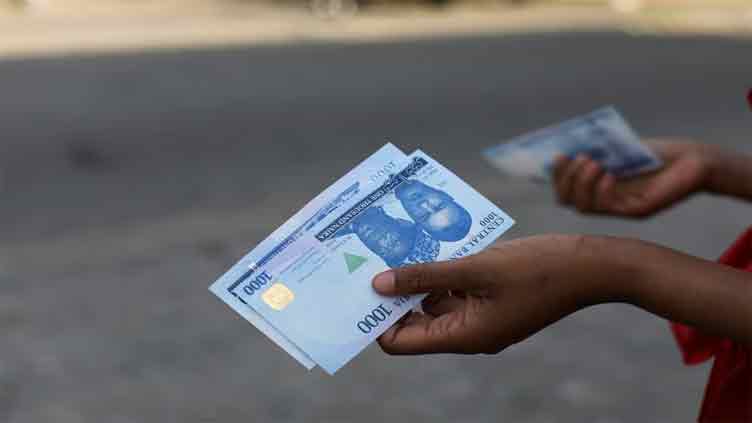Nigeria currency nosedives to as low as 1,531 per dollar

Business
Record govt debt, high unemployment and power shortages are a challenge to Africa’s largest economy
LAGOS (Reuters) – Nigeria's second currency devaluation in less than a year and new forex rules suggest the central bank is gearing up to let the naira float freely, but a huge backlog of orders for dollars and low liquidity may stall reform momentum, investors and analysts said.
Foreign investors in particular will need more convincing that Africa's biggest economy is finally ditching the controls that have for long distorted its currency market, making the country of 200 million people less attractive to foreign capital.
The naira offical exchange rate last week plunged to as low as 1,531 per dollar from 900, well below black market levels, after the market regulator changed its closing rate calculation methodology, in a de facto naira devaluation. The official rate had been drifting towards parallel market levels as forex shortages funnelled demand to unofficial sources.
Also last week, the Central Bank of Nigeria (CBN) announced limits on how much banks can hold in foreign currencies and eased rules on international money transfer operators, allowing them to quote the naira at prevailing market rates.
"You could call this a turning point," said Kyle Chapman, FX markets analyst at London-based Ballinger & Co.
"Now that there is no longer a more favourable (exchange) rate, the lack of incentives to take part in the official markets may turn into a tipping point that sees a true free float emerge if the central bank does not intervene," Chapman added.
Nigeria is struggling with a record amount of government debt, high unemployment and power shortages that have contributed to years of anaemic economic growth. Oil output is shrinking, and rampant insecurity means swathes of the countryside are outside government control.
In his first days in office last year, President Bola Tinubu scrapped a costly fuel subsidy and lifted some forex controls. But the reform drive appeared to lose steam as the naira continued to weaken without central bank intervention.
Andrew Matheny, senior economist with Goldman Sachs, said the latest devaluation made the naira look "cheap".
"This makes foreign portfolio inflows potentially appear attractive, however only in the circumstance that other aspects of monetary policy come together," said Matheny.
These include ending financing the budget deficit through central bank overdrafts, which increases the money supply and helped propel inflation to 28.92 per cent in December, the highest level in nearly three decades.
FOREX BACKLOG
Years of forex controls have created pent-up demand for dollars while the country struggles to raise its oil production, its single largest export earner.
Foreign currency shortages have created a large backlog of unpaid dollar transactions, which the CBN last year put at nearly $7 billion.
On Monday, CBN governor Yemi Cardoso told broadcaster Arise TV that $2.2 billion remained outstanding and that $2.4 billion would not be honoured after an audit found irregularities.
Goldman put the backlog at $12 billion, which has kept foreign investors away due to worries they will not be able to take their money out.
"The economy is severely starved of dollars. The (forex)injections so far appear to have not made a dent," said David Omojomolo, Africa economic at Capital Economics.
"The FX backlog to my knowledge is still large, and the pronouncements that it will be cleared 'soon' made for months now appear to encourage speculation rather than stabilisation."
The CBN will later this month hold its first monetary policy meeting since last July and it is under pressure to deliver a big hike in its benchmark interest rate from the current 18.75pc.
"For us to take a more active position in the local currency market we would still need greater clarity on the direction... and exactly how they're going to support the operations on the forex side with ... the monetary policy side," said Yvette Babb, a hard and local currency debt portfolio manager at William Blair.
The central bank's one-year treasury bill, for example, was selling at 17pc while the government's bill sold at 11pc as the government seeks to keep its borrowing costs low.
As long as big downside risks to local bond prices remain due to the unanchored nature of short-term yields with regard to the policy rate - reflected in the significant gap between the two - foreign investors will avoid local debt, said Gergely Urmossy, emerging markets strategist at Societe Generale.
"To restore the anchoring role of the policy rate, the CBN will have to deliver money market reforms," Urmossy said.


